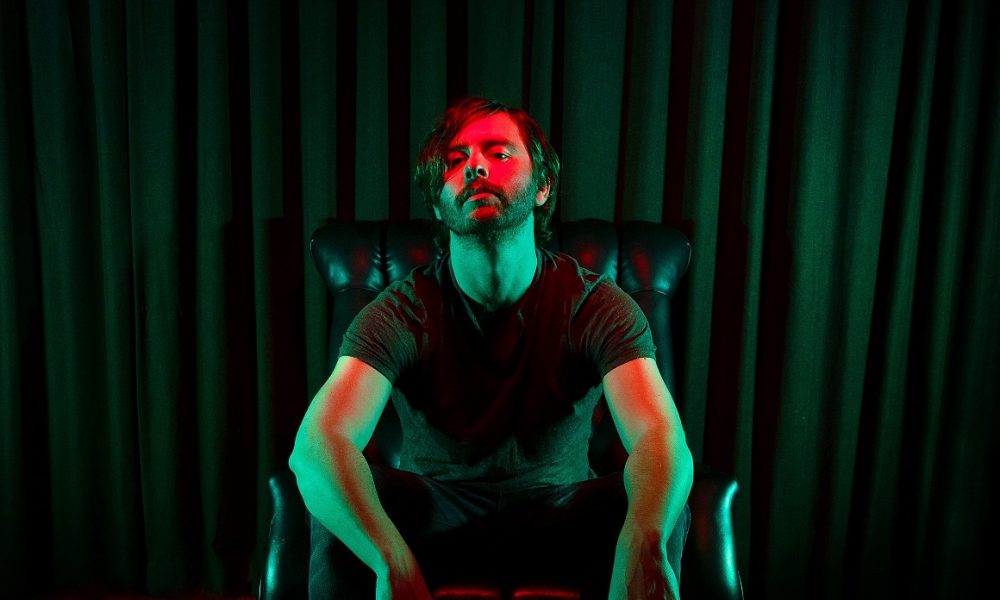

Today we’d like to introduce you to Jeff Roy. (he/him + they/them)
Hi Jeff, can you start by introducing yourself? We’d love to learn more about how you got to where you are today?
Absolutely! I’m a violinist-composer, filmmaker, and ethnomusicologist with a background in the classical musics of Europe, the Near East, and South Asia. It feels like I took the long road in my pursuit of music. In my early years, I played in a lot of orchestras, won music competitions, and got into some conservatories. But my interests were certainly too broad than what conservatory life would allow. I guess I always felt a bit like an outsider in the classical world. Coming out (as gay) in high school, coming from a two-mom household, and growing up in Milwaukee inspired my commitment to social justice through local community organizing. In undergrad, I studied Comparative Arts and explored connections between culture, politics, and art. I also began studying with Ustad Imrat Khan, a master of surbahar and sitar, expanding my range of techniques and repertoire on violin to include North Indian classical music. After undergrad, I taught orchestra in the St. Louis schools for a couple of years and then decided to pursue an advanced degree in ethnomusicology. I ended up at UCLA, where I studied with some great musicians, composers, and filmmakers who helped nurture my creativity at the intersection of music, film, and social justice in different ways. Thanks to programs like Fulbright-mtvU and Project Involve at Film Independent, I became inspired to take music composition for film more seriously.
We all face challenges, but looking back would you describe it as a relatively smooth road?
Some of the challenges I have faced stem from the persistence of cisheteronormativity in our families, institutions, and workplaces, which continue to marginalize and oppress LGBTQIA+ communities. As a queer person, I’ve encountered, and continue to encounter, these obstacles on all scales. They affect my social and professional opportunities, not to mention my more intimate relations with extended family members. With support from my immediate family and friends, I’m working on seeing these challenges as motivation to continue to push the boundaries of my craft. At the same time, I acknowledge the privileges of race and access that have played a pivotal role in shaping my journey, which I know has been smoother than many others.
Appreciate you sharing that. What else should we know about what you do?
I’ve composed for films––my own and others––but never released anything on music platforms until now. I started composing my debut EP “Arco” at the onset of the pandemic. Working on the project became part of a concerted focus on self-care. I’m grateful to my music producer, Danny Pravder at Homegrown Recording, vocalist Dorian Wood, and artist Patrick McPheron of Interiorstate for their brilliant insight and contributions to the project.
Arco is a 5-track reflection on shifting relations, loss, and recuperation through the queer experience. A convergence of sounds and musical influences from classical postminimalism to world folk, the project works like the soundtrack to a movie, a window into different places and times. Arco interweaves melodious strings (violin, viola and cello), subdued vocals, layered organic textures, elastic rhythms, and electronically-inflected atmospheric sounds from Los Angeles-area cityscapes and natural environments.
I hope what makes my music unique is its transnational reach, mobility, and queer sensibility. Arco is rooted by a sense of place here in Los Angeles but also serves as a bridge to memories of travel and living in places like France, India, and New Zealand. My work has been compared to artists and composers like Anohni, Charlotte Gainsbourg, Patrick Watson, and Max Richter. As a violinist-composer, I also find resonance with artists like Sudan Archives and Andrew Bird.
What would you say have been one of the most important lessons you’ve learned?
In thinking about an answer to this question, I find myself reflecting on the importance of self-care and forgiveness in the creative process. In balance with self-accountability and critique, self-care and forgiveness can play generative roles in the creation of rich and meaningful art. This is even more important in times of crisis.
Contact Info:
- Website: https://jeffroymusic.com/
- Instagram: https://www.instagram.com/jeffroymusic/
- Twitter: https://twitter.com/jeffroymusic
- Spotify: https://open.spotify.
com/artist/ 2TKigSrU6lcEAq168uMq2g -
Music Videos (YouTube Channel): https://www.youtube.
com/channel/UC6_ PSzTkEnRatuMCzBbfuDA








Image Credits:
Patrick McPheron











